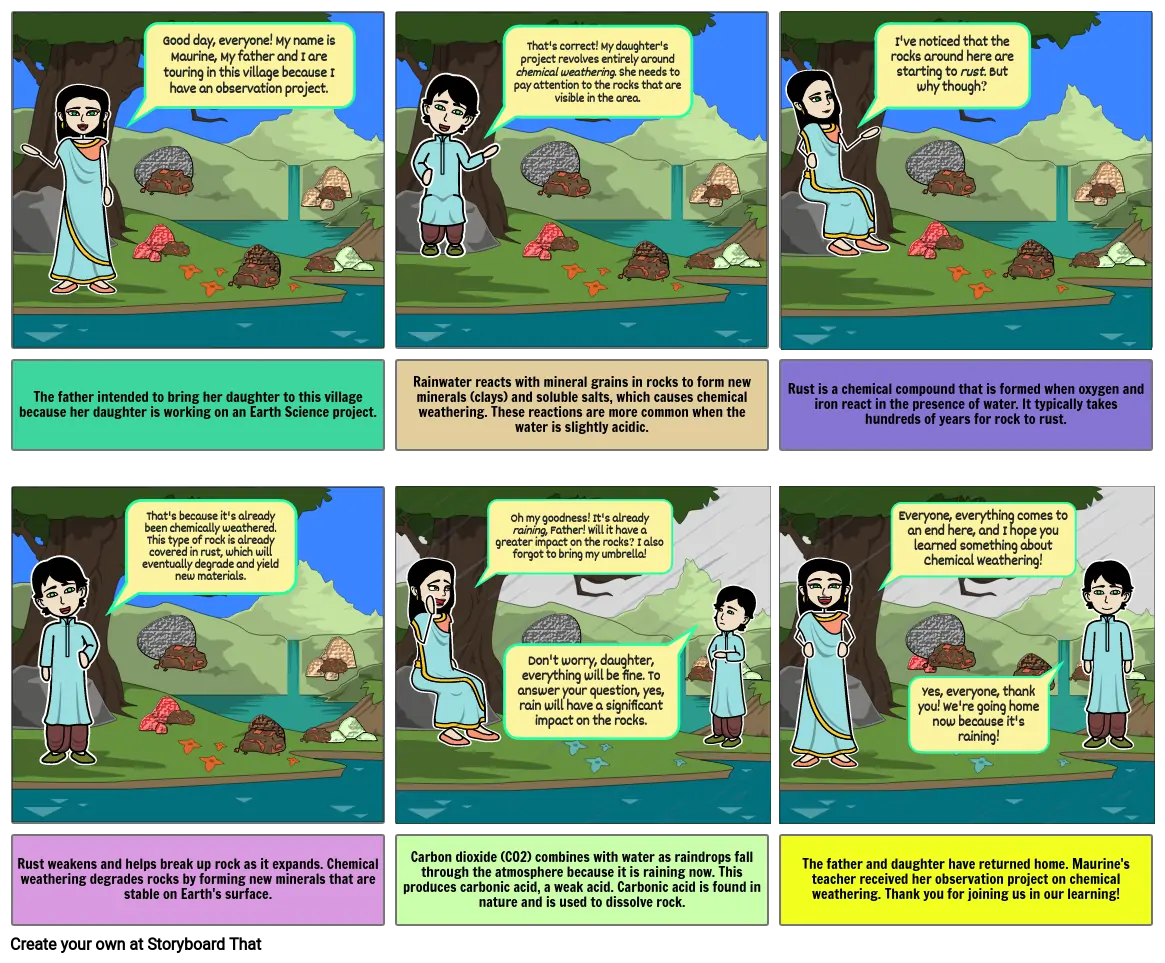Earth Science

Siužetinės Linijos Tekstas
- Good day, everyone! My name is Maurine, My father and I are touring in this village because I have an observation project.
- That's correct! My daughter's project revolves entirely around chemical weathering. She needs to pay attention to the rocks that are visible in the area.
- I've noticed that the rocks around here are starting to rust. But why though?
- The father intended to bring her daughter to this village because her daughter is working on an Earth Science project.
- That's because it's already been chemically weathered. This type of rock is already covered in rust, which will eventually degrade and yield new materials.
- Rainwater reacts with mineral grains in rocks to form new minerals (clays) and soluble salts, which causes chemical weathering. These reactions are more common when the water is slightly acidic.
- Oh my goodness! It's already raining, Father! Will it have a greater impact on the rocks? I also forgot to bring my umbrella!
- Don't worry, daughter, everything will be fine. To answer your question, yes, rain will have a significant impact on the rocks.
- Rust is a chemical compound that is formed when oxygen and iron react in the presence of water. It typically takes hundreds of years for rock to rust.
- Everyone, everything comes to an end here, and I hope you learned something about Chemical Weathering!
- Yes, everyone, thank you! We're going home now because it's raining!
- Rust weakens and helps break up rock as it expands. Chemical weathering degrades rocks by forming new minerals that are stable on Earth's surface.
- Carbon dioxide (CO2) combines with water as raindrops fall through the atmosphere because it is raining now. This produces carbonic acid, a weak acid. Carbonic acid is found in nature and is used to dissolve rock.
- The father and daughter have returned home. Maurine's teacher received her observation project on chemical weathering. Thank you for joining us in our learning!
Sukurta daugiau nei 30 milijonų siužetinių lentelių

